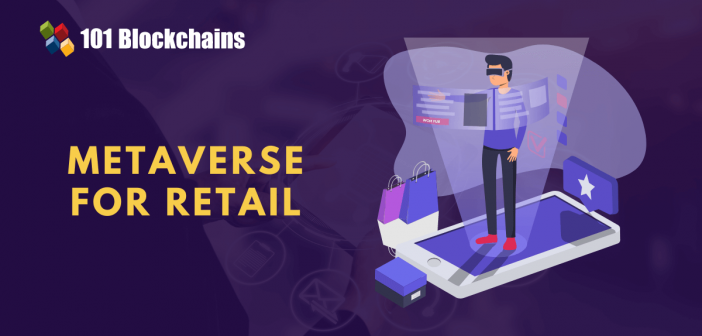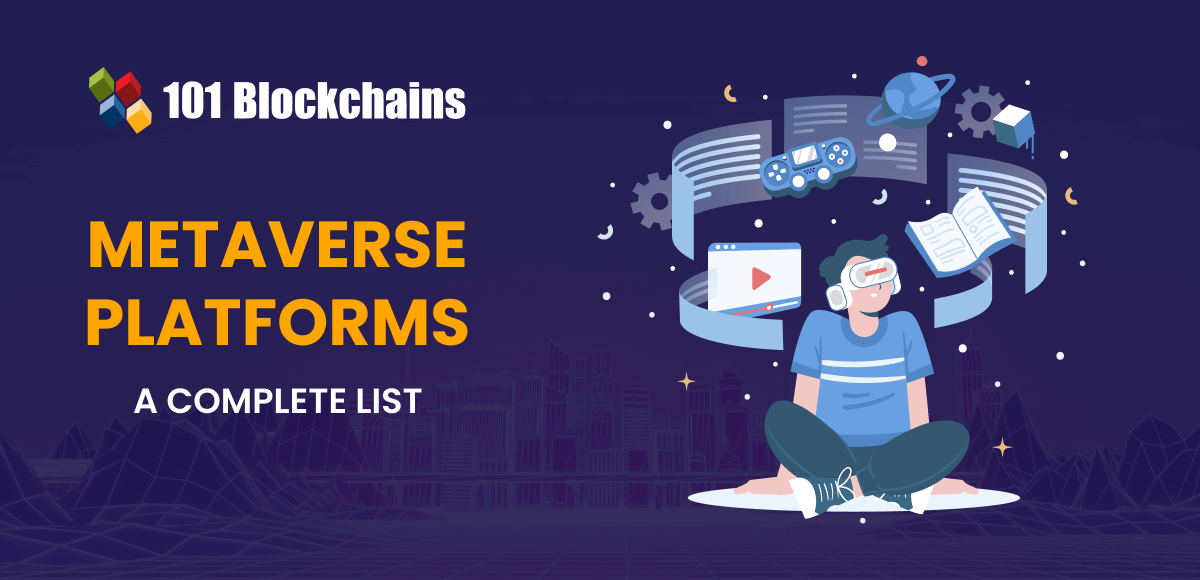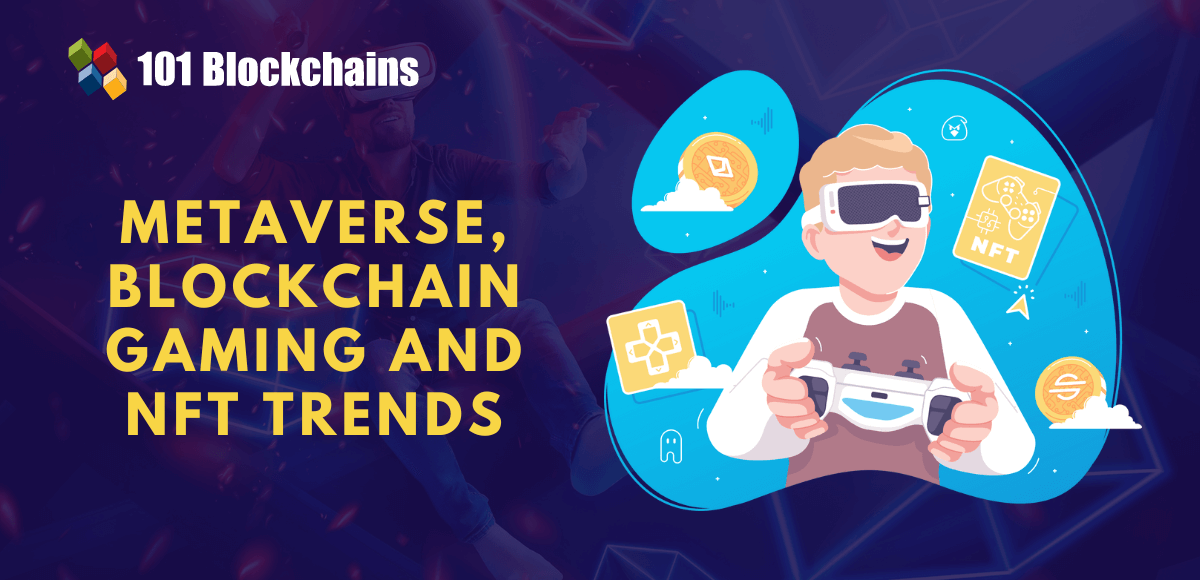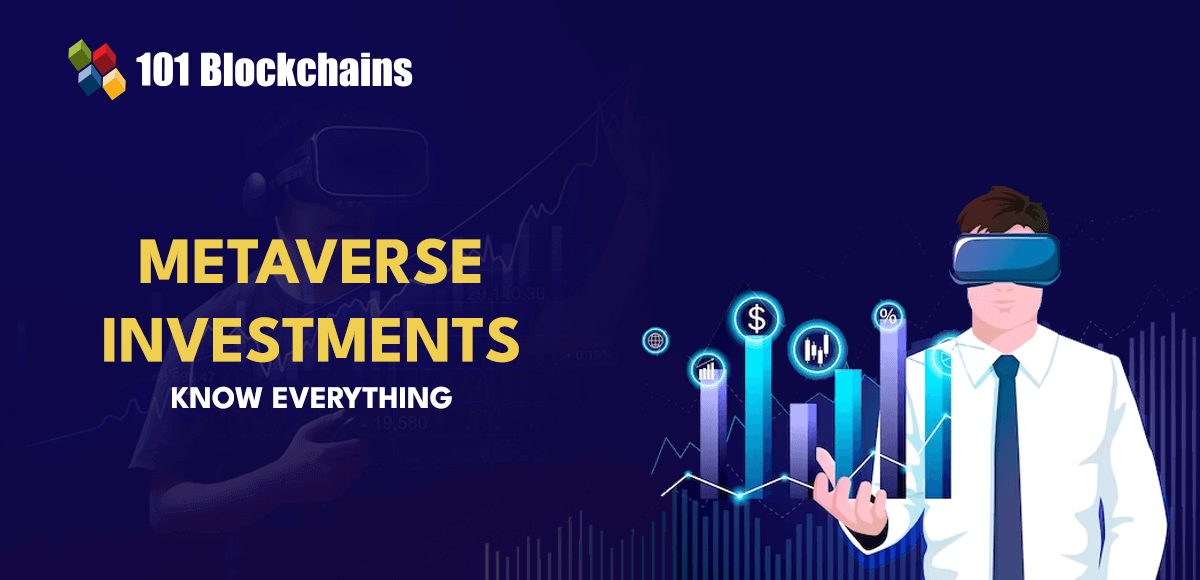Learn how blockchain truly works, master key definitions, and uncover what makes smart contracts so "smart." Dive into the fundamentals, gain valuable insights, and start your blockchain journey today!

- Metaverse
James Howell
- on February 04, 2022
Metaverse for Retail – Is the Future of Retail in the Metaverse?
What are the use cases of metaverse for the retail industry? Check out the use cases of metaverse for retail.
The amazing wonders of technology have unparalleled surprises for human civilization in every era. Starting from the development of industrial machinery to the expansion of the internet, technology has shaped many facets of our history and lives. The metaverse is one such technology that has the potential to change the way we interact with the world around us.
After Facebook brought a huge announcement by rebranding its parent company to Meta, the discussions surrounding metaverse started gaining momentum. The prospects of implementing the metaverse for retail use cases have been at the forefront of examples for driving real-world adoption of the metaverse.
While gaming has served as favorable grounds for expansion of the metaverse, the retail sector can also explore the prolific potential in the metaverse. How? The following discussion provides you with an impression of the possible use cases of metaverse in retail and how the metaverse would shape up the retail sector in the future.
What is the Metaverse?
If you want to find the answer to “How does metaverse change retail?” then you need to understand the metaverse first. Metaverse is basically a three-dimensional virtual world that blends physical and virtual reality in a shared, persistent environment. You can think of the metaverse as a three-dimensional representation of the internet.
You don’t have to interact with 2D web pages anymore, as the metaverse allows you to dive into the internet in 3D environments. There is no specific company that can gain a monopoly over the metaverse. However, different companies can have their own centralized metaverse platforms. So, what is the opportunity for retail sector in the metaverse?
Want to get an in-depth understanding of metaverse concepts? Enroll in Metaverse Fundamentals Course Now!
The Reentry of the Open Design
The implementation of metaverse for retail sector depends largely on the reentry of the unbound design. Blending the physical and virtual worlds can introduce new perspectives on the continuously changing definitions of shopping. For example, the internet spelled the doom of retail shopping malls worldwide as consumers felt more comfortable shopping from Amazon and other online stores. However, online stores cannot provide live and visceral shopping experiences like physical retail outlets.
The evolution of use cases of metaverse in retail sector would largely focus on offering an experience beyond the scope of traditional design. Designers and programmers could easily design a store according to the desired looks in the metaverse, thereby offering the same experience as actual retail stores.
For example, platform designers are working on creating shopping experiences connecting prominent retailers with shoppers worldwide. The use of VR technology such as Oculus headsets for exploring virtual worlds and games also presents natural opportunities for shopping in virtual environments.
Build your identity as a certified blockchain expert with 101 Blockchains’ Blockchain Certifications designed to provide enhanced career prospects.
Use of Metaverse in the Retail Sector
The flexibility to design stores and experiences tailored for target audiences of brands in the metaverse is a huge highlight for the retail sector. If you want to know the answer to “How does metaverse change retail?” then you must reflect on the top examples of the use of metaverse in the retail sector.
Here is an overview of some of the top players in the applications of metaverse for the retail sector.
-
Ralph Lauren
One of the foremost pioneers of metaverse clothing, Ralph Lauren, paves the foundation for using the metaverse in retail. Users could browse and try gender-neutral digital clothing on Roblox gaming platform. The limited-edition items priced at 150 to 200 Robux coins can help users in customizing their avatar.
Furthermore, visitors to the virtual Polo Shops of Ralph Lauren on Roblox can also enjoy many other experiences with the world. For example, visitors can roast marshmallows, take part in ice skating or drink hot chocolate. Furthermore, gamers on Roblox could also unlock different accessories through a treasure hunt.
-
Zara
Another formidable example showcasing the use cases of metaverse in retail sector is Zara. The popular fashion retailer has launched its own metaverse, Zepeto, for launching its unique ensemble of virtual garments. You can think of Zepeto as a South Korean metaverse for smartphones. It has three-dimensional avatars and over 2 million daily users, making it one of the rapidly growing virtual spaces in the last year. Zara has truly gone a step ahead in introducing metaverse clothing by enabling facilities for purchasing digital items with the native currency. Interestingly, the Zepeto metaverse offers accessibility to millions of users worldwide.
One of the striking highlights about Zara’s metaverse is that a major share of its audience includes young women in the age bracket of 13 to 24 years. The users create digital avatars on Zepeto according to the real physical characteristics of users. Furthermore, Zara also presents a solid example of using metaverse for retail by launching clothing collections sold in selected stores. In addition, the products in the virtual environment are available at the same prices as in the stores.
Want to learn Metaverse concepts quickly? Check out Now Metaverse Flashcards and Metaverse FAQs
-
Balenciaga
The next big name creating headlines for uses cases of metaverse in retail sector is Balenciaga. The famed brand entered into a collaboration with Fortnite and has created its own dedicated metaverse team. Balenciaga would focus the efforts of its metaverse team on identifying marketing and business opportunities in the metaverse space.
-
H&M
You would also find H&M as one of the top players exploring new avenues associated with the metaverse clothing market. First of all, the H&M brand is a regular participant in the Animal Crossing game. The brand has recreated eleven pieces from its Co-Exist Story ensemble and showcased them in an in-game fashion show.
The Looop Island of H&M on Animal Crossing has been tailored for reflecting the vegan values of the Co-Exist Story ensemble. For example, the island bans hunting and fishing while the island’s restaurant serves only vegan food. Animal Crossing players could also download the clothes virtually at the Able Sisters shop of the brand in the game.
Apart from these top names, many other big names in fashion, such as Adidas, Nike, Dolce & Gabbana, and Gucci, have taken note of the metaverse. Now, the important question is about how the metaverse can transform the retail sector.
Want to become metaverse expert? Checkout detailed guide on How To Become Metaverse Developer
Future of the Metaverse and Retail Relationship
The question “How does metaverse change retail?” presents massive concerns as of now. If you observe the strides in implementing metaverse for different use cases in the retail sector, then you would find that everything is in the experimental stage. Will the metaverse applications sustain in the long term?
According to The Digital Life Index, almost 59% of consumers like to purchase clothes, shoes, and accessories online. Therefore, it is completely unreasonable for players in the retail space to ignore the prospects associated with metaverse. At the same time, brands should also take note of the fact that digital-ready consumers want more than just online experiences.
However, the experiences would play a major role in driving the popularity of metaverse clothing. Users could interact with products in the form of digital avatars in the virtual worlds of the metaverse. Even if the experiences might seem similar to traditional consumer behavior and store experiences, they would eventually become unique.
You can not only shop with your digital avatars in the metaverse but also purchase digital items for your avatar. What are the other possible ideas for driving implementation of metaverse for retail use cases, particularly in fashion? Here are some of the potential use cases which can drive retail activity in the metaverse.
-
Integrated Marketing
Among the many value propositions of the metaverse, marketing opportunities take the first spot for brands. Retail brands could leverage the metaverse for placing advertisements in organic spots within the metaverse. For example, the billboard of a brand is placed strategically at the checkpoint of a game.
-
Virtual Reality
Developments in VR technology are driving new innovation for use cases of metaverse in retail sector. Many retailers have started working on platforms for leveraging immersive experiences in VR gadgets such as Oculus headsets.
-
Augmented Reality
Another promising technology that can fuel the adoption of metaverse for retail sector is augmented reality or AR. Big names such as IKEA and Amazon have invested in AR to help users check out how products would look in their homes and workspaces.
-
Non-fungible Tokens
Retail brands could work on branding specific clothing collections as NFTs and explore new revenue streams with the same.
Aspiring to Become a Certified NFT Expert? Enroll in Certified NFT Professional (CNFTP) Course Now!
-
Digital Avatar Products
The use cases of metaverse in retail could also include the options for introducing products for digital avatars. For example, top brands like Louis Vuitton and Gucci sell digital accessories such as jewelry and handbags for virtual avatars.
Want to become a certified blockchain professional? Enroll Now: Certified Enterprise Blockchain Professional (CEBP)
Conclusion
The arrival of a metaverse in the retail sector would introduce many new opportunities for brands. First of all, the metaverse would bring customers closer to the brands. In addition, consumers find better opportunities for interacting with products and verifying their value in the metaverse. With substantial value advantages in comparison to existing online shopping experiences, the use of metaverse for retail can expand the base for many new brands. Apart from the use cases of engaging and immersive shopping experiences, the evolution of the metaverse in retail would introduce many other benefits. Start exploring more about the metaverse and its capabilities right now.
*Disclaimer: The article should not be taken as, and is not intended to provide any investment advice. Claims made in this article do not constitute investment advice and should not be taken as such. 101 Blockchains shall not be responsible for any loss sustained by any person who relies on this article. Do your own research!






